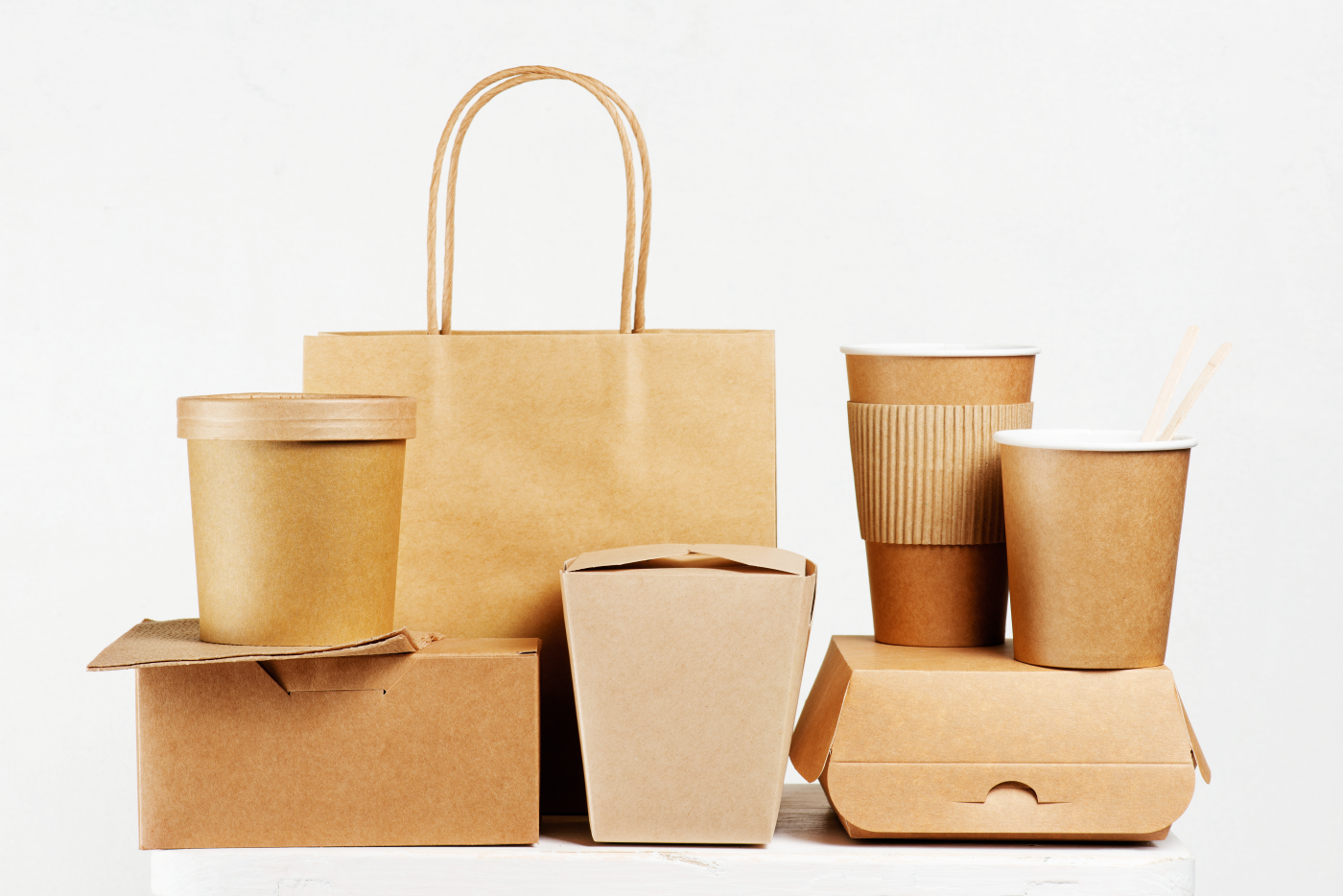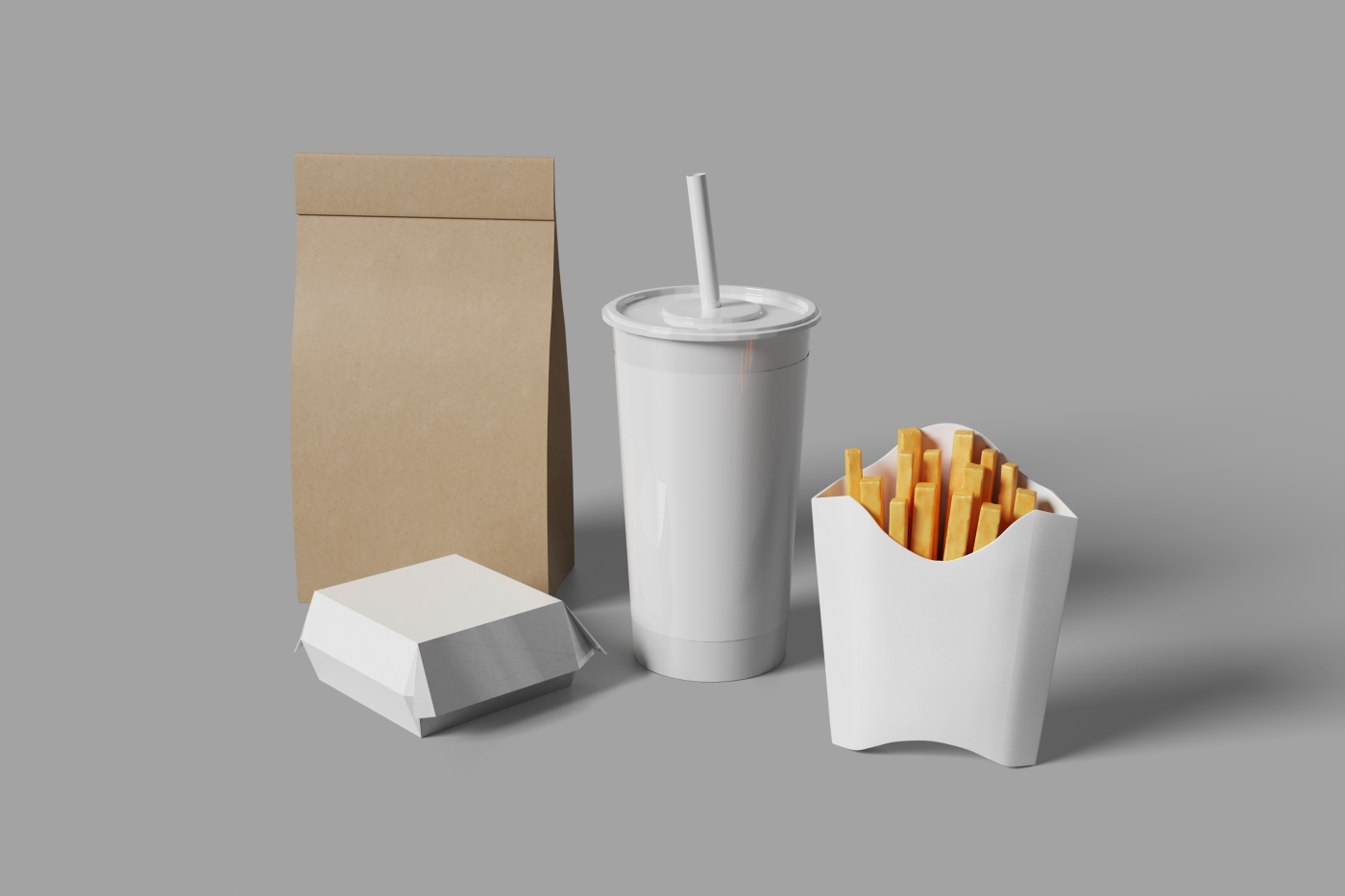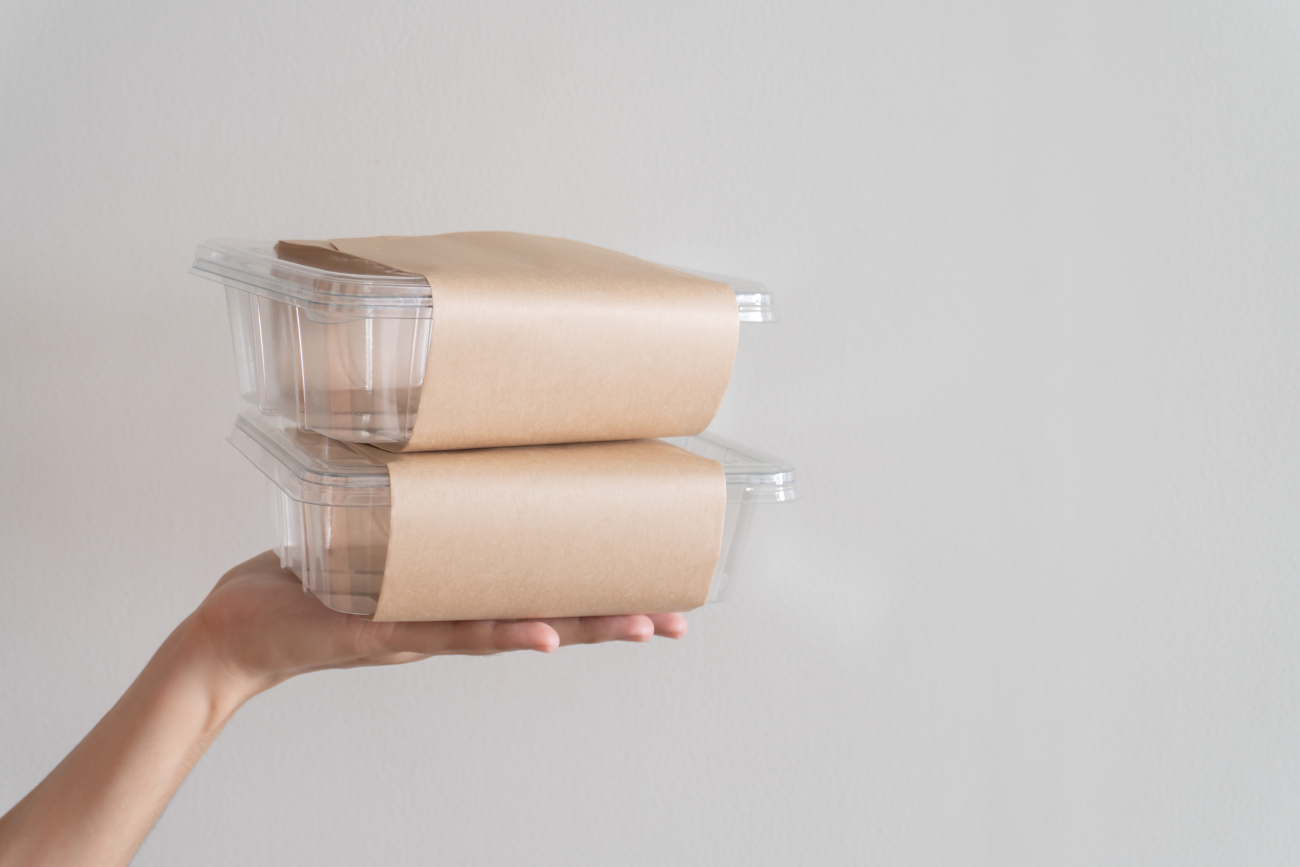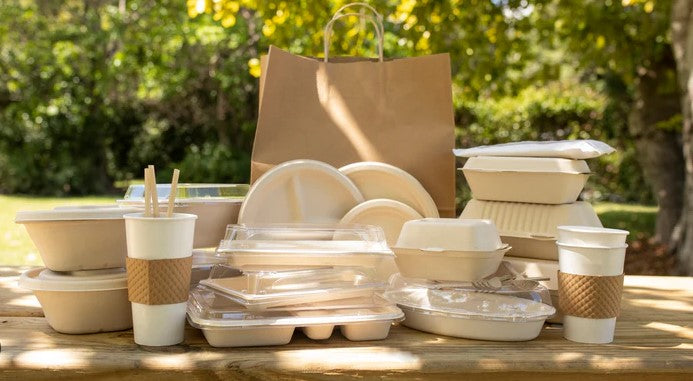Why Eco-Friendly Packaging Matters for the Food Industry
The food industry has long depended on traditional packaging solutions for convenience, durability, and low cost. However, this reliance comes at a significant environmental cost. Plastic packaging; particularly single-use varieties, contributes to vast amounts of global waste. These materials often end up in landfills or polluting our oceans, taking hundreds of years to degrade. Worse still, many of these plastics are not recyclable, adding to the growing crisis of non-degradable waste. As consumers become more aware of these environmental consequences, there’s a growing expectation for businesses to move towards plastic-free packaging and embrace sustainable practices.
This shift in awareness has sparked a major transformation in the food sector. Consumers are no longer just buying products, they’re investing in values. The demand for sustainable packaging in the food industry is rising fast, with diners and shoppers preferring brands that actively reduce their environmental impact. Choosing to go eco-friendly is not just an ethical decision, it’s a strategic move to meet changing consumer preferences and stay ahead in a competitive market.
What Is Eco-Friendly Packaging?
Eco-friendly packaging refers to materials and solutions that have a reduced impact on the environment throughout their life cycle. It includes options that are:
- Biodegradable: Meaning they naturally decompose without releasing toxins.
- Recyclable: Which can be reprocessed and reused.
- Compostable: Which breaks down into organic matter under composting conditions, enriching the soil.
These terms are often used interchangeably but have distinct meanings. For example, all compostable materials are biodegradable, but not all biodegradable materials are compostable in home settings.
Common materials used in eco-friendly packaging include kraft paper, bagasse (a by-product of sugarcane), bamboo fibre, cardboard, cornstarch-based polymers, and PLA (polylactic acid), a plant-based alternative to traditional plastic. These materials not only offer the benefits of biodegradable packaging, but they are also sturdy, hygienic, and ideal for a range of food applications. When selected correctly, these materials provide the functionality businesses need while significantly reducing their environmental footprint.
Why Green Packaging Solutions Matter
Making the switch to green packaging solutions has wide-reaching benefits, not just for the planet but for businesses themselves. Environmentally, switching to plastic-free packaging means less reliance on petroleum-based products, a reduction in non-recyclable waste, and lower greenhouse gas emissions during production and disposal. It supports global efforts to combat climate change and minimise the strain on landfill.
For businesses, the advantages extend into customer perception and trust. Consumers today want to support companies that reflect their values. Offering sustainable packaging in the food industry helps reinforce a brand’s commitment to the environment and social responsibility. This, in turn, builds credibility and encourages long-term loyalty.
Financially, eco-friendly packaging also makes sense. While some sustainable materials may appear more expensive initially, many options are now competitively priced. Not only that, but lighter packaging can reduce shipping costs, and recyclable or compostable waste is often cheaper to dispose of. In the long run, the benefits of biodegradable packaging can include both cost savings and increased brand value.
Future Outlook
The future of packaging in the food industry is undeniably green. Trends show a sharp rise in the adoption of sustainable packaging in the food industry, not only among independent cafés and restaurants but also among major retailers and chains. Innovations such as reusable delivery containers, and intelligent labelling that encourages recycling are beginning to enter the market.
Legislation will also play a central role in shaping this future. Governments are moving quickly to ban or restrict single-use plastics, encouraging businesses to adopt eco-friendly practices as standard. At the same time, consumer activism is becoming more vocal, social media and review platforms give customers a place to reward or criticise brands based on their environmental efforts. Food businesses that ignore this shift risk reputational damage and loss of sales.
How Green Packaging Solutions Can Increase Your Sales
Eco-conscious decisions are increasingly influencing purchasing behaviour. Using green packaging solutions allows businesses to tap into a growing demographic of environmentally minded consumers. When faced with two similar food offerings, many customers will choose the one that comes in sustainable packaging, even if it costs a little more. This means businesses that adopt plastic-free packaging can often charge a premium or gain more repeat customers simply by aligning with popular values.
Eco-friendly branding also opens the door to valuable marketing opportunities. Labels such as “100% recyclable” or “compostable packaging” are selling points in themselves. Social media campaigns highlighting your sustainability journey can attract new followers and drive engagement. Ultimately, these efforts translate into increased footfall, greater basket sizes, and improved customer retention, directly impacting your bottom line.
Make the Switch to Eco-Friendly Packaging
The move towards sustainable packaging in the food industry is more than a passing trend, it’s a necessary and profitable transition. Businesses that embrace plastic-free, recyclable, or biodegradable materials are not only helping the environment but also reaping real commercial benefits. From stronger brand loyalty to better regulatory compliance and long-term cost savings, the case for eco-conscious packaging is clear.
At Ambican, we specialise in helping businesses make this transition smoothly and effectively. Our wide range of green packaging solutions such as our 100% Compostable Pulp Range, is designed for practicality, presentation, and environment protection. If you’re ready to future-proof your business and boost your appeal to the modern consumer, order your new eco-friendly packaging or get in touch with Ambican today. Let’s work together to build a cleaner, greener food industry – one package at a time.




